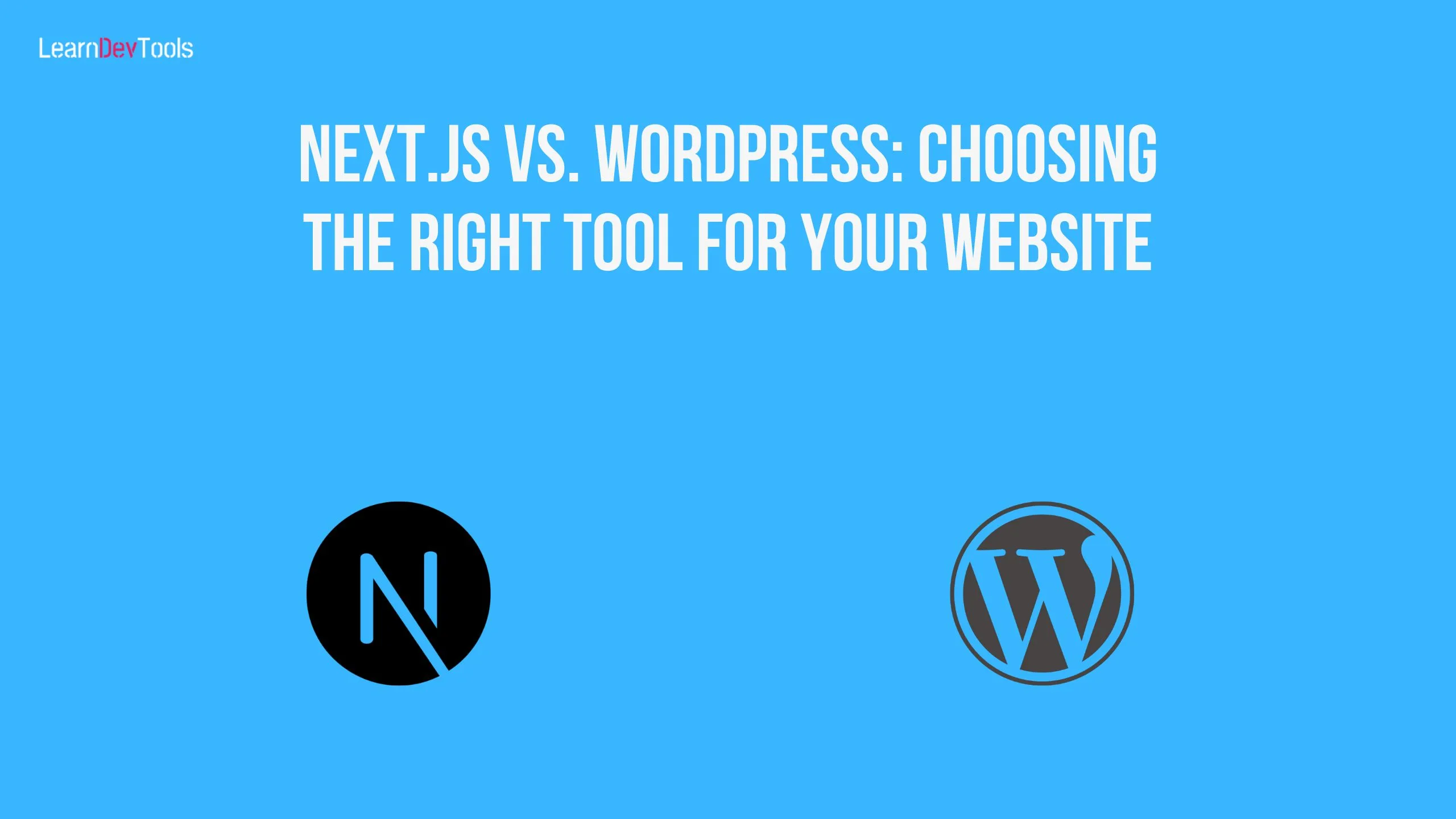Web development is an ever-evolving field, and keeping up with the latest trends and technologies is essential for those looking to stay ahead of the game. One of the most exciting developments in recent years has been the rise of Next.js, a framework for building server-rendered React applications. With its powerful features and intuitive API, Next.js has quickly become a favorite among developers looking to create high-performance web apps with ease. In this beginner’s guide, we’ll take a deep dive into the world of Next.js and explore everything you need to know to get started
What is Next.js
Next.js is a powerful JavaScript framework that enables web developers to build server-rendered React applications with ease. It was created by Zeit, a company known for its innovative web development tools. Next.js is designed to simplify the development process for web applications, making it easier for developers to build high-performance apps that provide an excellent user experience.
One of the main benefits of Next.js is that it allows developers to build applications that are both fast and scalable. This is achieved through a combination of server-side rendering and static site generation, which provides a lightning-fast user experience. In addition, Next.js is designed to work seamlessly with React, which means that developers can take advantage of all the features that React has to offer, including its powerful component system and state management capabilities.
What is React?
React is a JavaScript library that is used to build user interfaces. It was created by Facebook and is now one of the most popular libraries for building web applications. React is designed to be fast, efficient, and easy to use, making it an excellent choice for both beginners and experienced developers.
One of the main benefits of React is its powerful component system, which allows developers to build complex user interfaces with ease. React also provides state management capabilities, making it easy to manage the data and state of your application. In addition, React is highly customizable, allowing developers to create their own custom components and libraries.
React is used by some of the biggest companies in the world, including Facebook, Instagram, and Netflix. It is also supported by a large and active developer community, which means that there are plenty of resources available for developers looking to learn or improve their skills.
Features of Next.js
Next.js comes with a wide range of features that make it an excellent choice for web development. Here are just a few of the key features that Next.js offers:
Server-side rendering
One of the main benefits of Next.js is that it provides server-side rendering, which allows web applications to load quickly and efficiently. This is achieved by rendering the initial HTML on the server, which is then sent to the client. This provides a much faster user experience, as the user does not have to wait for the JavaScript to load before seeing the content of the website.
Static site generation
Next.js also provides static site generation, which allows developers to create highly optimized and scalable web applications. Static site generation involves pre-rendering the HTML for the entire website at build time, which provides lightning-fast load times and excellent scalability.
Automatic code splitting
Next.js provides automatic code splitting, which allows developers to split their code into smaller, more manageable chunks. This makes it easier to optimize the performance of the website, as only the necessary code is loaded on each page.
Easy deployment
Next.js is designed to be easy to deploy, with built-in support for hosting on platforms such as Vercel and Netlify. This makes it easy for developers to get their web applications up and running quickly and efficiently.
Benefits of using Next.js for web development
There are many benefits to using Next.js for web development, including:
Improved performance
One of the main benefits of Next.js is that it provides excellent performance, thanks to its server-side rendering and static site generation capabilities. This results in faster load times and a better user experience.
Simplified development
Next.js is designed to simplify the development process for web applications. It provides a wide range of features that make it easier for developers to build high-performance applications quickly and efficiently.
Scalability
Next.js is highly scalable, thanks to its static site generation capabilities. This makes it an excellent choice for websites that need to handle high levels of traffic.
Flexibility
Next.js is highly flexible, and can be used to build a wide range of web applications, from simple websites to complex web applications.
To sum up everything, Next.js is an excellent choice for web development, offering a wide range of features that make it easier and more efficient to build high-performance web applications.
Next.js vs traditional web development
Next.js offers a number of advantages over traditional web development, including:
Faster load times
Next.js provides server-side rendering and static site generation, which results in much faster load times compared to traditional web development.
Improved user experience
Thanks to its fast load times and excellent performance, Next.js provides a better user experience compared to traditional web development.
Simplified development process
Next.js is designed to simplify the development process for web applications, making it easier and more efficient to build high-performance applications.
Better scalability
Next.js is highly scalable, thanks to its static site generation capabilities. This makes it an excellent choice for websites that need to handle high levels of traffic.
What type of Application can you build with Next.js?
Next.js can be used to build a wide range of web applications, including:
E-commerce websites
Next.js is an excellent choice for building e-commerce websites, thanks to its excellent performance and scalability. Medusa is an open source composable commerce tool that offers out-of-the-box features to build performing online stores with a rebuild Nextjs storefront that you can customize per your need. Target is an e-commerce website build with Nextjs.
Social networking sites
Next.js can also be used to build social networking sites, thanks to its powerful component system and state management capabilities. For example, Tiktok, Twitch and Nextflix Job use Nexjs.
Blogging platforms
Next.js is also an excellent choice for building blogging platforms, thanks to its static site generation capabilities. For example, Hashnode uses Nextjs
Business websites
Next.js can be used to build a wide range of business websites, including marketing sites, landing pages, and more. Example include Supervielle, Virgin, and Verge.
Who uses Next.js?
Next.js is used by a wide range of companies and organizations, including:
Airbnb
Airbnb uses Next.js to power its search engine, which handles millions of queries every day.
Hulu
Hulu uses Next.js to power its video streaming platform, which provides a fast and reliable user experience.
Ticketmaster
Ticketmaster uses Next.js to power its ticketing platform, which handles millions of transactions every day.
Where can You learn Next.js?
There are many resources available for developers looking to learn Next.js, including:
Official documentation
The official Next.js documentation provides a comprehensive guide to using the framework, including tutorials, examples, and more.
Online courses
There are many online courses available that teach how to use Next.js, including courses on platforms such as Udemy, Pluralsight, and more.
Community resources
The Next.js community is highly active, with many resources available for developers looking to learn or improve their skills. This includes forums, Slack channels, and more.
When should you Learn Next.js?
Next.js is an excellent framework for web development, and it’s worth learning if you’re looking to build high-performance web applications. Here are some situations where learning Next.js might be particularly beneficial:
Building high-traffic websites
If you’re building a website that needs to handle high levels of traffic, Next.js is an excellent choice thanks to its excellent performance and scalability.
Needing to improve website performance
If you’re looking to improve the performance of your website, Next.js can help thanks to its server-side rendering and static site generation capabilities.
Building complex web applications
Next.js is an excellent choice for building complex web applications, thanks to its powerful component system and state management capabilities.
The Bad Side of Nextjs
Even though, Next.js seems to provide a better experience, it also has its downsides.
The cost of Next’s adaptability is continual management. You will require a committed individual with the necessary knowledge to successfully implement any requested adjustments. It’s helpful to know that this individual need not be a developer.
You must develop your own frontend because Next.js does not come with many pre-built front pages; this will necessitate updates from time to time. It implies that hiring a frontend developer will be necessary to complete the task.
Therefore, Redux, MobX, or another component must be added to your program if a state manager is necessary.
Conclusion
Next.js is a powerful JavaScript framework that enables web developers to build server-rendered React applications with ease. With its powerful features and intuitive API, Next.js has quickly become a favorite among developers looking to create high-performance web apps with ease. In this beginner’s guide, we’ve explored everything you need to know to get started with Next.js. Whether you’re a seasoned pro or just getting started, we hope this guide has helped you discover the power of Next.js and revolutionize your web development skills. So why wait? Start learning Next.js today and take your web development skills to the next level!







